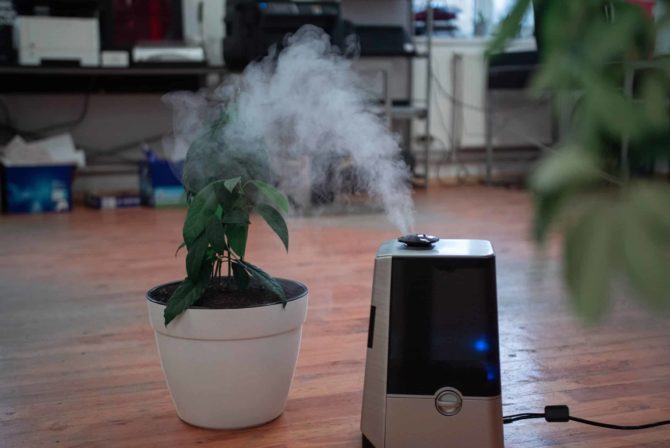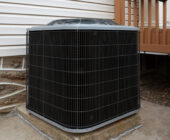
Dry skin and runny noses brought on by cold temperatures tend to keep us inside during the winter. If these winter woes are following you indoors, there likely is not enough humidity in your house. Here are a few reasons why the air in your home is drier in the winter months.
Increased Heater Use
To escape the cold weather outside, naturally, we turn on the heater inside. However, some furnaces contribute to humidity loss. Sealed combustion furnaces use outside air to heat the inside of your home. During winter, the air outside is cold and dry — so pulling dry air inside lowers the indoor humidity level.
Air Leaks
There are many areas in the home that, if left improperly sealed, can allow the dry outdoor air to sneak into your house. Not only do these leaks suck the humidity from your home, but they can also result in costly energy bills. The most common spots for air leaks are:
- Attics
- Doors
- Ductwork
- Plumbing penetration points
- Windows
Luckily, there are several ways to manage the indoor humidity levels of your home during the winter.
How to Raise Humidity Levels
Adopt a Few (or Many) Houseplants
Plants release water from their leaves into the air in a process called transpiration. Plants with bigger leaves have a higher transpiration rate, so the bigger the better. Additionally, having multiple plants will have a greater effect on humidity levels. Houseplants are a great way to beautify your space while also humidifying and purifying the indoor air quality.
Boil Water on the Stove
Whether you are cooking pasta or heating up water for your morning coffee, boiling water is another method for adding moisture back into the air. To get the most out of boiling water, make a stovetop potpourri by adding sliced fruit and spices. Allow the ingredients to simmer for hours to create a natural air freshener during the holidays while humidifying the air.
Leave the Bathroom Door Open, and Let the Bathwater Sit
Long, warm showers cause steam, foggy mirrors and muggy conditions. Leaving the bathroom door open while taking a warm shower allows the humidity from the steam to travel into nearby rooms. If you take hot baths during winter, allow the water to cool in the tub for a few hours before draining it. As the warm water cools, it will evaporate into the air creating humidity.
Invest in Humidifier Technology
Humidifiers allow you to control the humidity level in your home. A portable humidifier is great for humidifying select, frequented rooms of your home. A whole-house humidification system is installed into your existing HVAC system to evenly humidify your home. ASHRAE recommends an optimum relative humidity range of 45%-55% indoors to manage health effects.
Seal Potential Air Leaks
The reason for dry air in your home during winter is simple: cold air has gotten in. Sealing vulnerable areas around your house with caulk is a simple step toward preserving humidity. If you want to guarantee dry air stays outside, schedule an appointment with a professional HVAC company for a complete inspection of your home.
The team at Champion AC & Plumbing understands the importance of a comfortable and energy-efficient home during every season. Contact our energy experts for more information on furnace installation and heater repair this winter.



